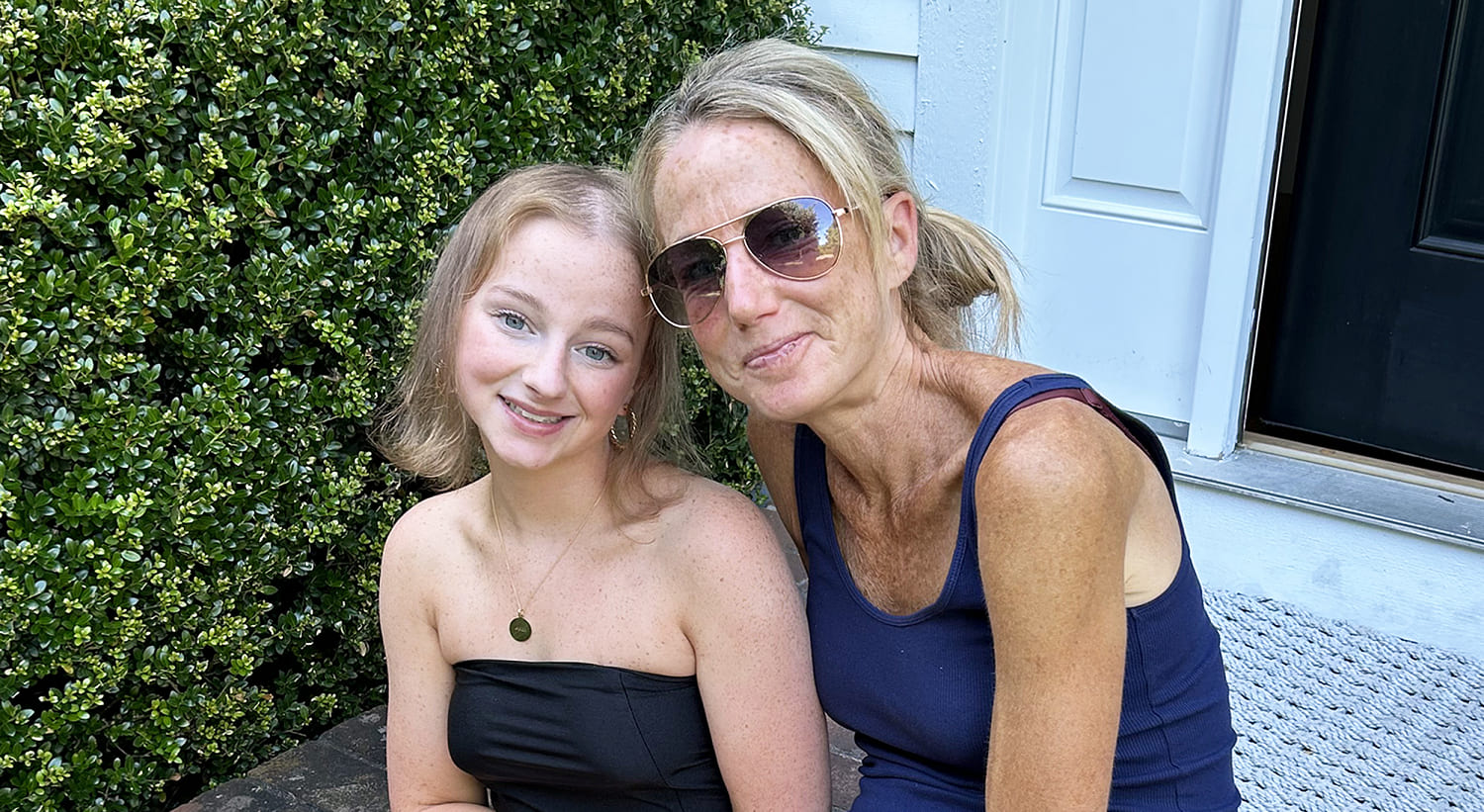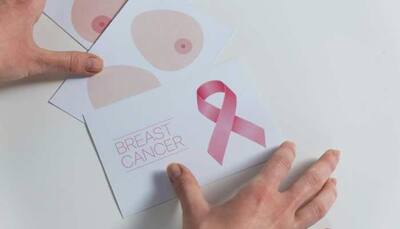By the time I last August, she’d had it with my “helping.” We stood in the tiny space cluttered with labeled boxes, bedding, an ottoman and a totally impractical but everyone-has-one headboard. “Let me hang up your pictures,” I said.
“No, I’m good,” she protested. When I reached for the nails, she pushed back harder. “You don’t get it.

I don’t want your help.” I chalked up her reaction to nerves — hers mine. We look alike, talk alike and think alike.
This may be our superpower, but it is also our kryptonite. Miscommunication defines a lot of our back and forth, and passive-aggressive behavior (hers and mine) runs amuck. A slammed car door — or, this time, the hammer tossed back into a box — tells me all I need to know.
In hindsight, Emily’s frustration was justified. For over a decade, I’d made an occupation out of helping her. Guilt and desperation can make a mother “do too much.
” (Her words, not mine.) Emily had when she was 4. Her odds of survival were 50/50.
We spent more than 300 nights in Boston Children’s Hospital staring at the infamous Citgo sign and trudging through a protocol of care that threatened to kill her before the cancer did. We were lucky. She lived, but a lot of kids like her die.
The treatment left her legally deaf and damaged her endocrine system, kidneys, height and fertility. Still, the only thing she hated more than hair that refused to grow back was the way I showed up to fix all of her problems. For the next fourteen years, I convinced myself it was my responsibility to keep her alive.
After all, I was the one who’d shrugged off her knee pain (a softball-sized tumor rested on her left adrenal gland and caused pressure) as growing pains. Doctors dismissed my self-blame, assuring me there was nothing I could’ve done, but I didn’t let myself off the hook so easily. My one job was to keep her safe, and I’d failed.
Now, on this, my second-chance at mothering her, I needed to up my game. Every decision felt urgent and monumental. Cancer recovery books made me paranoid, so I overhauled her diet, replacing SpaghettiOs with chickpea pasta and organic tomato sauce.
“This is awful,” she said, and refused to eat it. In middle school, she stashed empty Dorito wrappers in her dresser drawer and backpack. Her pushback was in gestures, not in words.
Popping a red frosting flower into her mouth knowing red dye made me cringe amused her. If mother-daughter relationships can be complicated, our tangled mess of emotion and trauma took complicated to a new level. No one told me the best way to mother a kid who’d had cancer.
I did my best every day. It was too much and never enough. My post-cancer fallout duties included things like picking up prescriptions, making school accommodations, handling health insurance disputes, scheduling medical appointments, and finding a therapist for a teenager who didn’t want therapy.
Yet I was also responsible for normal-mom things like not letting her quit soccer or a job she hated, caring for her sister, and holding firm to a curfew time. I was the caregiver, bad cop, pseudo-doctor, education advocate, phone location lurker, and on-call nurse while side-hustling as her mother. She resented all of it.
In turn, I resented her lack of appreciation for everything I did. I said things I didn’t mean. She did, too.
On my way home from , I wondered if we’d ever talk or text. Emily held the power on everything now — her health choices, social life, nutrition. And, her engagement with me.
I thought I’d be terrified. Instead, I felt relief. The proverbial gun to my head for the past 14 years rested on the car dashboard.
I could see it but no longer felt threatened by it. My guess is Emily felt similar but different. Maybe more like a caged bird being set free.
In the passenger seat flying along the highway, I scrolled my Facebook feed and felt weird for not sobbing like fellow moms, . For days, I waited for that feeling to come. Instead, something miraculous happened.
Little by little, day by day, the best part of me — the part that had been buried under the unrealistic expectations of mothering a sick kid for 14 years — perked up. Just a little at first, in the form of a good morning mood and a pot of coffee I didn’t need to save a cup of for Emily. Not having direct access to Emily forced me to surrender the details of her day to her.
Decisions that had always struck me as high-stakes were, to her, just part of life. I didn’t feel the need to call and make sure she took her medicines. And I knew if I did, she’d get aggravated at the implication I didn’t trust or believe she was capable of taking care of herself.
For weeks, I didn’t completely trust the feeling of freedom. Allowing Emily to take care of herself felt reckless, irresponsible. Did normal parents feel like this? Or just cancer parents? It didn’t matter.
I shifted my focus to little pleasures that for years, I’d been too overwhelmed and distracted to enjoy. I replaced headspace about what I’d make her for dinner, or if she had enough gas in her car with debating what Netflix series I wanted to watch. My softening made room for me to really get to know Emily — a funny kid who can always justify buying another crop top.
And Emily got to know me too — a woman with good intentions who’d made a lot of mistakes because I’m human. I could be “just” her mom. She could be “just” my daughter.
Every day at school, Emily called, texted or FaceTimed me. I thought she’d stop after finding her place at school, but she didn’t. I felt special, loved, forgiven.
If my mood was off, I’d wait to connect. She did the same thing. The time allowed one of us to let a mood pass — one that had nothing to do with the other — but had the potential to trigger us.
Our talks were light, lacking the tension that defined so many talks of before. She amused me with tales about weekend jaunts around campus and her lack of willpower to pass up dining hall pizza. “It just calls to me every night,” she joked.
Our running joke was if she’d break down and hang something on her bare dorm room walls. “It bothers you so much more than it bothers me,” she said. Emily shared one of her Spotify playlists (who knew she loved ), and texted me in real time while we watched It turns out, the space apart had brought us closer together.
We were able to nurture our relationship outside of cancer, chronic health issues, mother control tendencies, and teenage nonsense (yes, even kids with medical conditions pull shenanigans). Most days, I wish for a do-over. A chance to tell my younger self to resist so much helping and fixing because nothing, especially Emily, is broken.
But maybe realizations like that only come with time and space and hard-earned experience. And maybe where we are now is at least in part thanks to who I was then? Most days, I wish for a do-over. A chance to tell my younger self to resist so much helping and fixing because nothing, especially Emily, is broken.
This summer is different than last. Emily does her thing, and I do mine. I don’t lurk on our shared location app anymore.
We take day trips and go shopping together. She asks me to buy organic fruit and vegetables for the big salads she makes for dinner. Sometimes we hit bumps — like the way she tosses dishes into the dishwasher — but we bounce back after her text to me: sooooorrrrryyyyyy.
I love when she’s home. And, I love when she goes back to school. I think the feeling is mutual.
With the start of school just about here, I remind her to order her dorm essentials soon. “Yup,” she says as she heads to her bedroom. “I think this year, I’ll hang up pictures.
” Amy McHugh is a teacher and writer living on Cape Cod. Her work has appeared in The New York Times, The Washington Post, Oprah Daily, Newsweek and HuffPost, among others. She's currently working on her memoir, "Permission to Be Human.
" Find her online at or on Twitter at ..


















